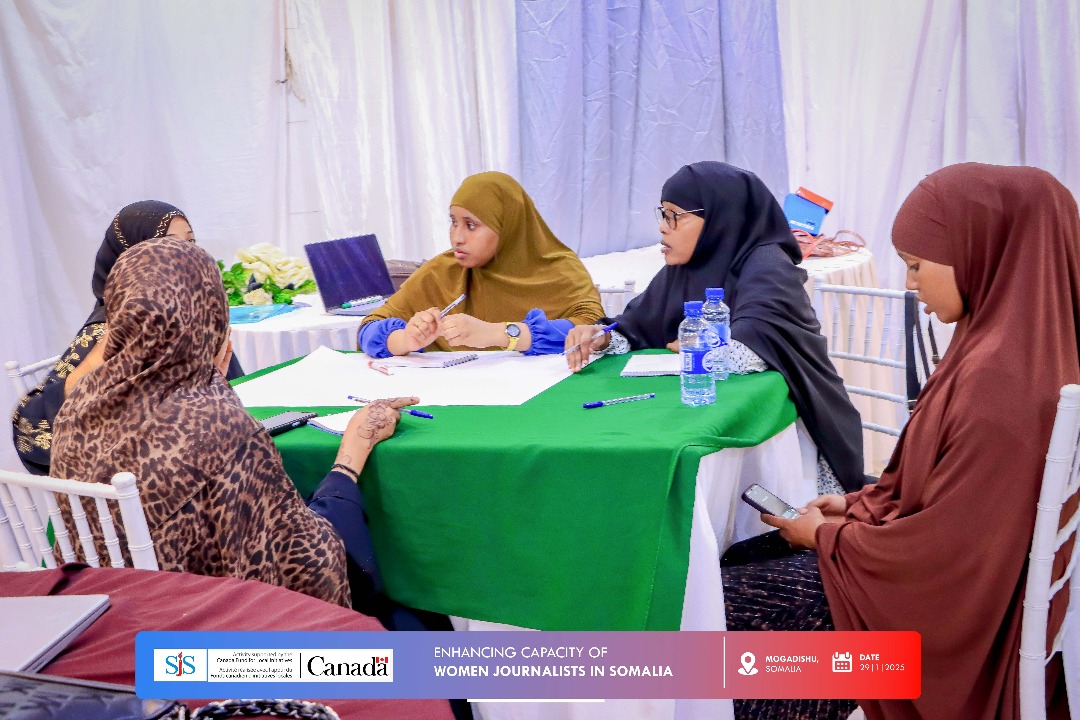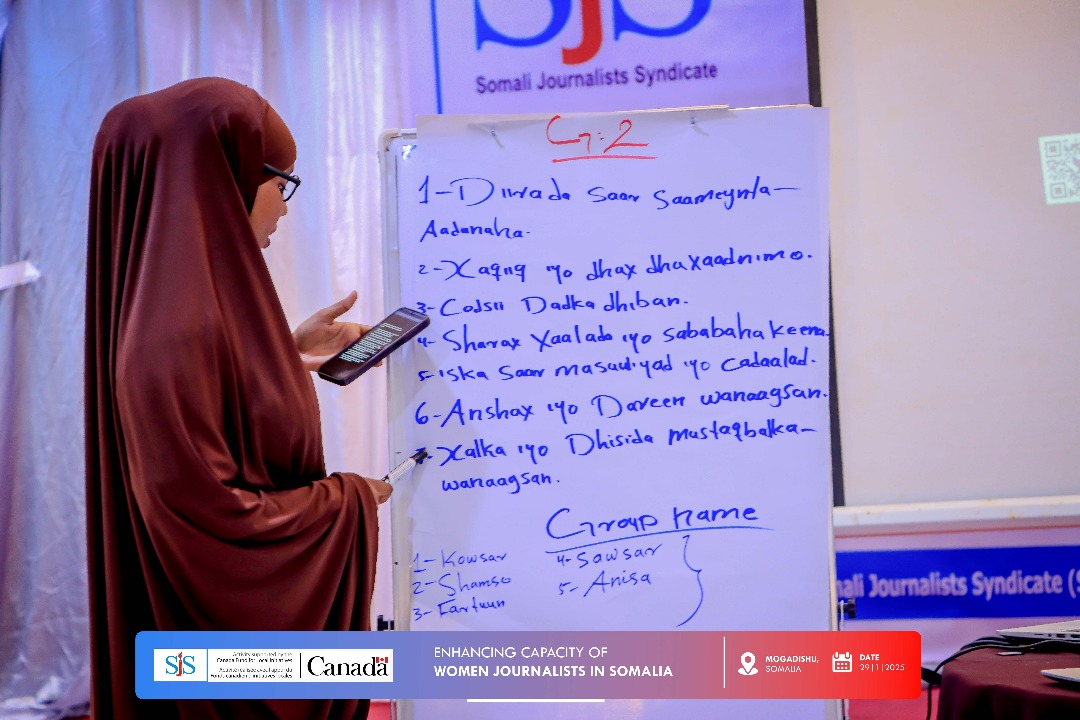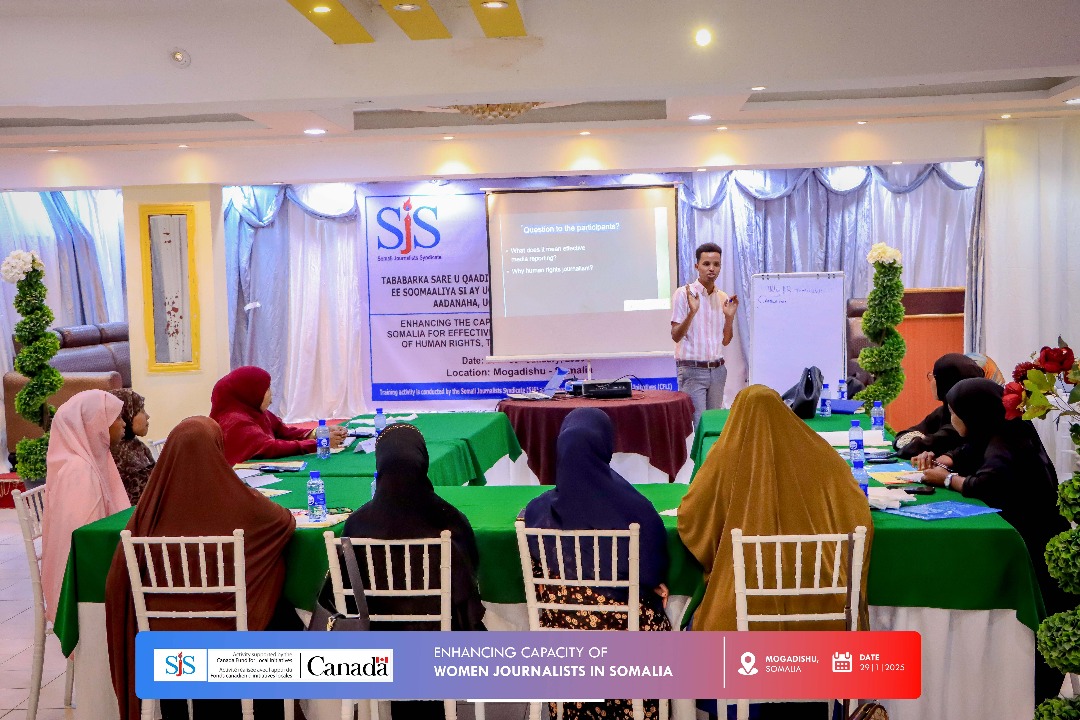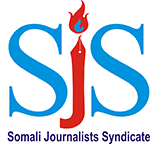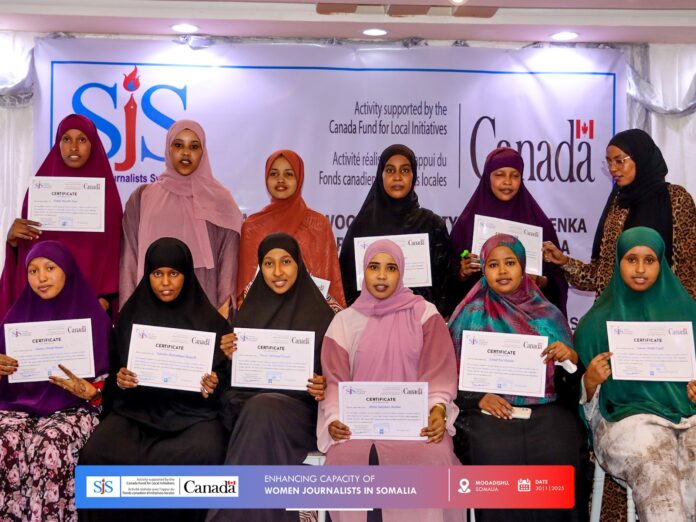MOGADISHU, Somalia – 6 February, 2025 – The Somali Journalists Syndicate (SJS) has successfully concluded another round of training aimed at empowering women journalists in Somalia.
This initiative, supported by the Canada Fund for Local Initiatives (CFLI), seeks to enhance the skills and awareness of female reporters, particularly in documenting and reporting human rights issues.
Between January 29–30, SJS hosted 10 women journalists from Mogadishu, Hirshabelle, Southwest State, and the Gedo region for an intensive two-day workshop in Mogadishu.
The training focused on improving safety and security measures, producing high-quality journalism on gender-related issues, and amplifying the voices of marginalized communities.
Sawsar Sheikh Faadil, a journalist with RTN TV Mogadishu, highlighted the importance of the safety protocols covered during the training.
“For me, security was a major concern. As a female reporter who goes out every day in search of stories, I benefited greatly from learning the necessary safety and security protocols,” she said. “I am grateful to the trainers and hope for more training opportunities in the future.”
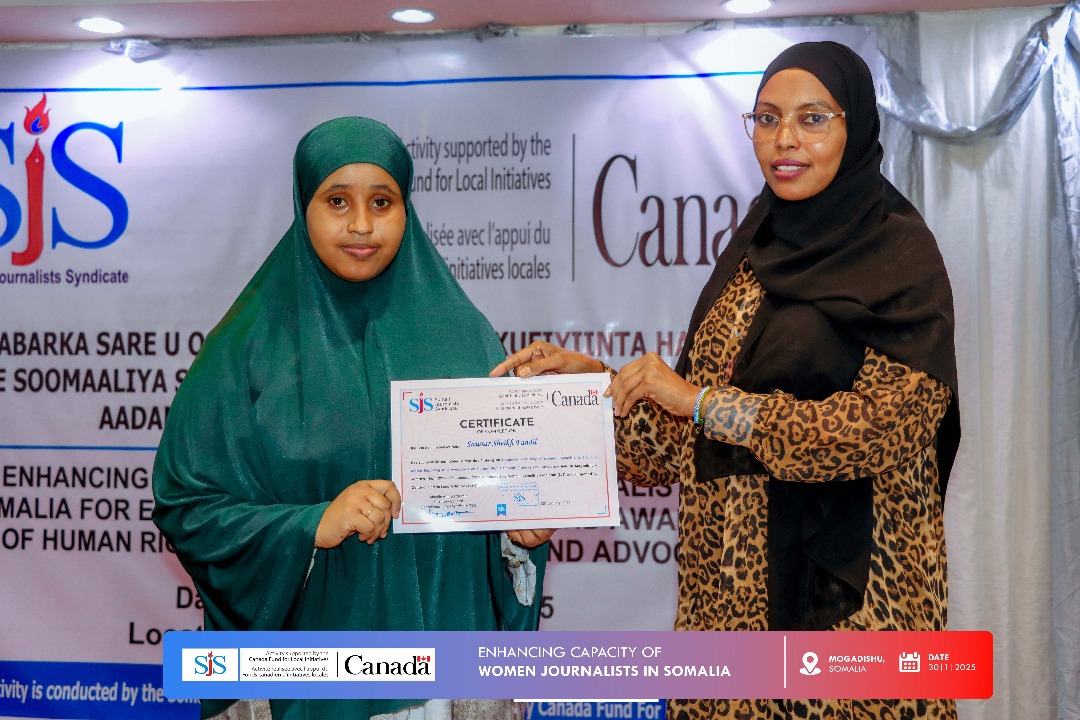
SJS put significant effort into selecting participants who would benefit the most from this program, particularly those from marginalized communities and conflict-affected regions.
Overcoming Challenges in Conflict Zones
Kawsar Abdirahman Barkhadle, a reporter from Radio Gedo, traveled to Mogadishu for the training despite the ongoing conflict between Jubaland state authorities and the federal government. Her hometown, Beled-Hawo, like many in Gedo, remains under threat from Al-Shabaab militants, posing severe risks to journalists.
Being a female journalist comes with additional risks in Somalia’s patriarchal society, where women are often discouraged from pursuing male-dominated careers.
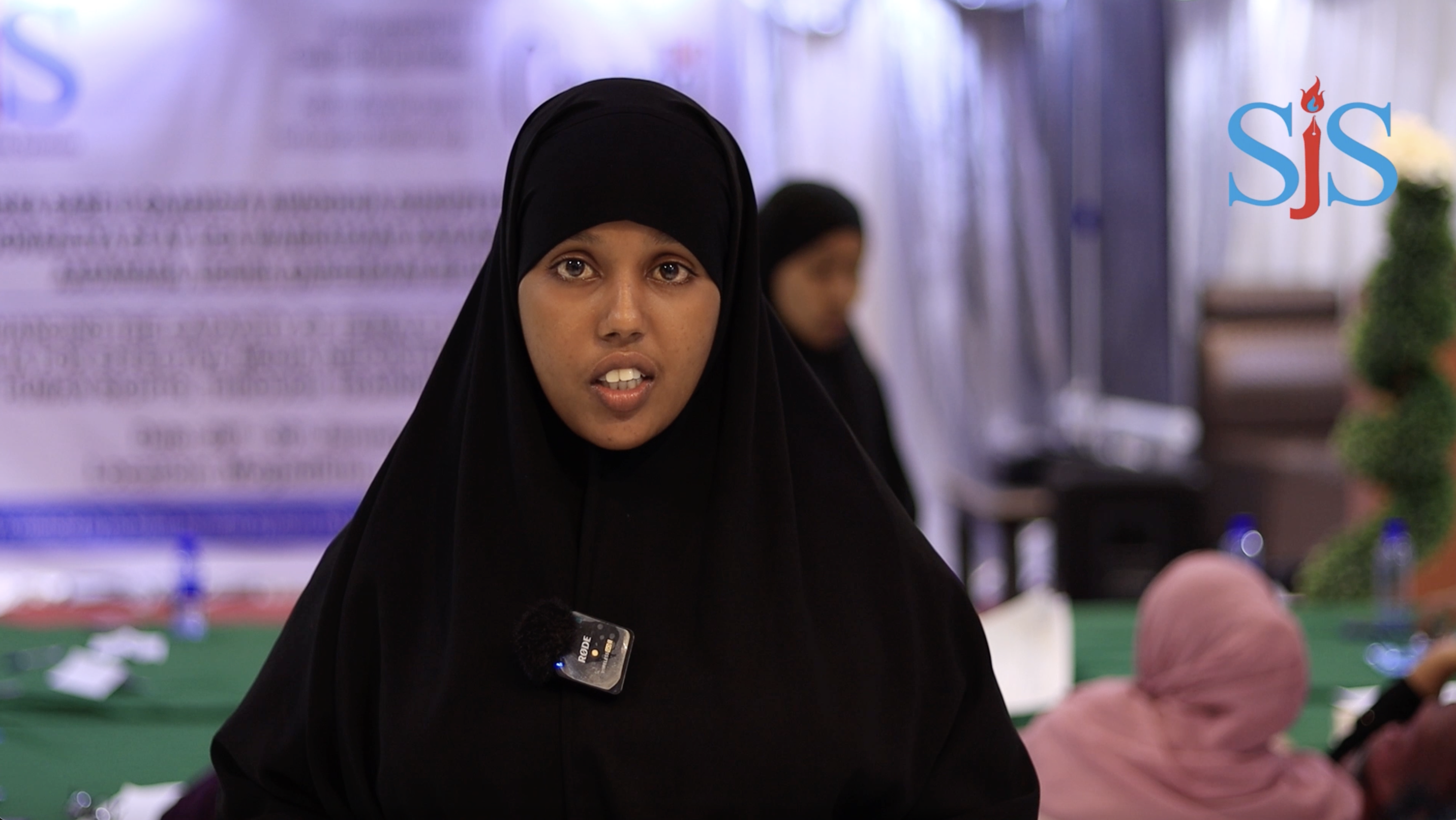
“When I started as a radio presenter in 2021, my parents urged me to quit. Society still struggles to accept women in certain professions,” Kawsar explained. “This training equipped me with advocacy skills, and I urge SJS to expand these sessions to reach more women in remote areas.”
Nurto Mohamed Hussein, a Radio Warsan reporter from Baidoa, said the training allowed her to connect with other female journalists and exchange experiences.
“During the workshop, I networked with women reporters facing similar challenges—low pay, safety concerns, and working in male-dominated media houses,” Nurto said.
During the training, Nurto took the opportunity to interview fellow participants, documenting their struggles in a report later published by Kaab TV.
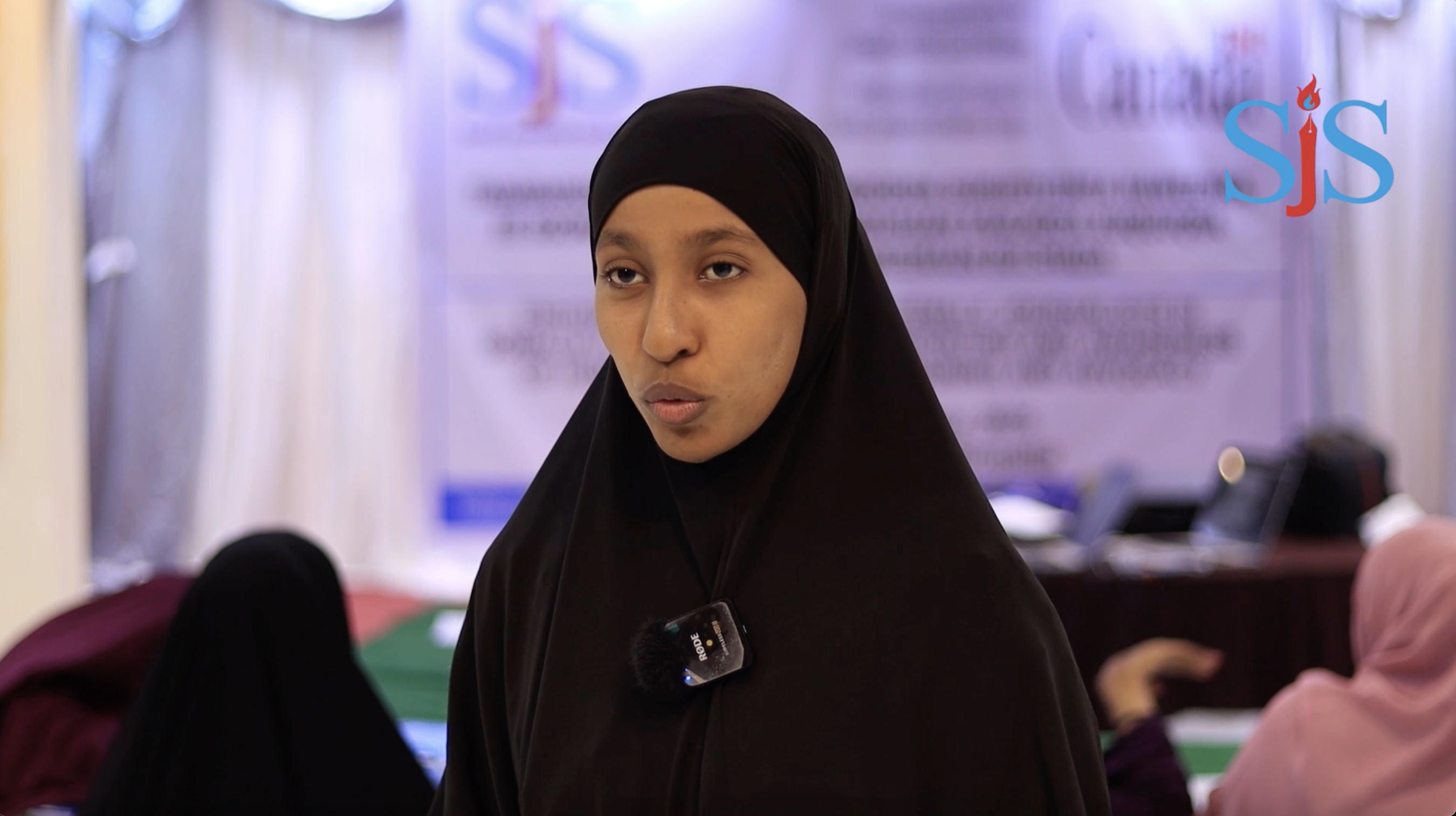
In addition to hands-on training, SJS mentors journalists in developing impactful stories about their communities. When newsroom editors dismiss such stories, SJS advocates for their publication.
“This training program has been one of our biggest achievements since 2021, thanks to CFLI’s continued support,” said SJS Secretary-General Abdalle Mumin. “Changing the status quo for women journalists takes time and persistence. That’s why we must sustain and build on these efforts.”
Women make up 20% of Somalia’s professional journalists and are among the lowest paid, often earning less than their male counterparts for equal work. Many lack essential skills such as video and audio editing and access to equipment like computers, cameras, and voice recorders, making them more vulnerable to exploitation including sexual advances and harassment.
“When we listen to our female trainees, they share painful experiences of harassment and challenges in performing their duties,” SJS Secretary General Mumin said. “That’s why SJS has rented a studio and provided equipment for women journalists to produce their own stories. We are proud to support vulnerable female reporters and will continue these efforts.”
